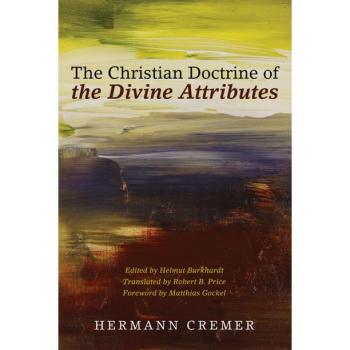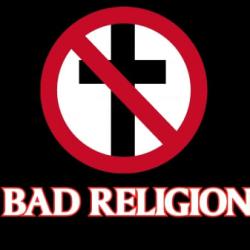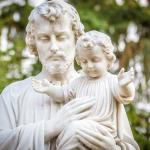The Sin of Tribalism
There are many things Christians ought to resist among themselves. Not because salvation depends on that but because they are pernicious to a healthy relationship with God and others in the family of God. And because they give Christians and our God a bad name among those who watch us. Christians are aware of some of them but seemingly unaware of others that are rampant and destructive. Tribalism is one too many Christians fall prey to unawares.
Tribalism, as I use the term here, refers to a group attitude of undeserved pride and superiority based solely on identification with a group. It is the tendency to look down on other people for no other reason than they don’t belong to the group. Often it includes looking down on members of the group who are not perceived as “native” to it.
I suspect that tribalism is inherent in fallen human nature. Everyone seems prone to it. We look for a group to belong to for no other reason than a feeling of security and superiority. If we don’t find one we start one. Occasionally a person becomes a tribe of one but that’s usually evidence of narcissism and/or failure to bond with other people. We are created for community; tribalism is a poor but alluring substitute for true community.
What’s the difference between a community and a tribe? A tribe can be a community and a community can be a tribe—in the mere sociological sense. “Tribalism,” however appears when a community closes its ranks around an illusion of superiority and excludes others for the purpose of increasing feelings of superiority. A tribe invents “badges” or emblems of superiority that to outsiders are totally illusory. Tribes rarely recognize themselves as tribal in this sense; members really do think they are superior to outsiders. Outsiders, however, recognize that the badges of superiority are false—unless they want in.
The hallmark of tribalism is unwarranted group pride and feelings of superiority based solely on belonging to the group. A tribe usually has boundaries although occasionally a tribe might be loosely organized with unclear boundaries. Always, however, a tribe has a strong center, a person or relic of some kind that is the group’s identity idol.
Tribalism always echoes religion: gatherings that mimic worship, a mythos that celebrates past events, martyrs, prophets, relics in shrines, intense loyalty to the group with required expressions of that loyalty, excommunication for those who lack loyalty, etc.
The point of tribalism is that this sense of loyalty and echoes of religion, feelings of superiority and rhetoric of exclusion, have nothing to do with truth or ethics. Of course, only outsiders can see that. Insiders who come to recognize that and attempt to point it out in order to dampen the intensity of group feeling are usually disciplined. If they do not “come around” they are excluded.
From a purely secular point of view the problem with tribalism is its tendency to lead to violence. From a Christian point of view another problem with tribalism is the false sense of pride and superiority it encourages. In other words, its tendency to lead to idolatry.
From a secular point of view a group can legitimately take pride in itself insofar as it has contributed to the common good of the human community. From a Christian point of view a group cannot legitimately take pride in itself because whatever good it has or has done is a gift of grace. It can only take pride in God.
Tribalism is sin—from a Christian point of view.
Jesus confronted tribalism among the Jewish leaders of his day. Some of them claimed that they were especially favored by God only because they were children of Abraham. The Apostle Paul also confronted that attitude. But the point for Christians is not to point a finger at any group guilty of tribalism but to examine ourselves. We are no less prone to tribalism than anyone else. Our only protection from tribalism is an intense sense of our own unworthiness and of God’s grace as the only reason for any good we have.
Christian history (to say nothing of non-Christian history) is riddled and rampant with tribalism but it’s easier to recognize in the past and at a distance than in the present and up close.
A wise and mature person is one who is aware of tribalism and resists it. That’s true whether the person is Christian or not. A wise and mature person, Christian or not, holds himself or herself aloof from the rituals of tribalism even when forced by necessity to be present.
Some people are called to expose tribalism, sometimes by mocking it. They usually suffer for that. Tribalism is actually quite silly because it is so immature and rooted in illusion if not delusion. Sometimes it crosses over from being silly to being dangerous. That’s when prophets are especially needed. That’s when their lives are in danger.
My father, for all his faults, was a wise and mature man. I don’t know how he did it, but he inculcated in me a skepticism of tribalism—even as he participated in its rituals. I watched him closely, more closely than he knew, and came to realize his inner resistance to tribalism. That was supported by books I read even as a young person. A profound education tends to make one wise and mature and therefore aware of tribalism and skeptical of its claims.
I grew up in a religious denomination that was intensely tribal. Fortunately that never grew into violence, but it did grow into spiritual abuse of those who were not perceived to be loyal. Loyalty was a hallmark of the group and people who dared to question its “specialness” were labeled “disloyal” and “negative” even when they were right. It was a tiny denomination that had nothing special or unique. Its doctrines and practices were identical to those of many other denominations. But somehow the founders and leaders inculcated in naïve followers a false sense of exceptionalism. I was naïve enough to think that they, the lower level leaders, would respond with at least quiet affirmation when I pointed out that there were other, equally devout, equally “Spirit filled” Christian groups equally possessing a “full gospel.” They did not. I was forced out.
But throughout my post-(that)denominational journey I have always been aware of similar tribalism among Christian (and other) groups. I learned that one must smile or grimace, keep one’s head down and mouth shut, in order to survive in many organizations and groups. Occasionally I have encountered and even belonged to groups that were wise and mature enough to eschew tribalism and close ranks only around truth and right and not around false consciousness and emblems of group superiority. Even then, when they closed ranks, such groups did not claim superiority over others.
So what are the antidotes to the poison of tribalism? For Christians there are two. First, a very strong aversion to idolatry and avoidance of even the appearance of it and second, a very strong sense of total dependence on God’s grace for every good. For secular people there are two. First, a wise and mature aversion to illusion, delusion and “group think” and second, a historical awareness of the violence to which tribalism can lead.
So what are the markers, symptoms, of tribalism? How can a person recognize and avoid it? I’ve given some strong hints of that already. Here I’ll express them more concisely and blatantly. The first symptom of tribalism is self-pride in belonging to a group that expresses itself in superiority over others for no other reason than belonging to the group. A second symptom is expectation of loyalty to the group for no other reason than the group’s false superiority. A third symptom is shame and punishment for perceived disloyalty to the group that the group deserves (based on its false sense of superiority). Fourth and finally, a symptom is subtle but clear expressions of inferiority of people within the group who are not native to it and withholding of privileges only because they are not native to it.
















